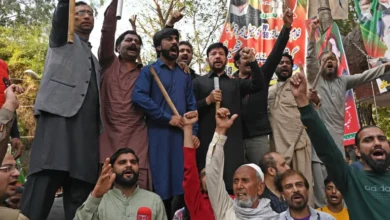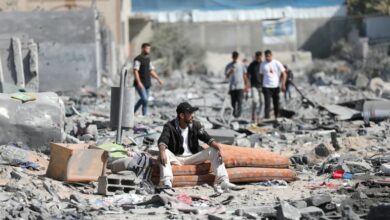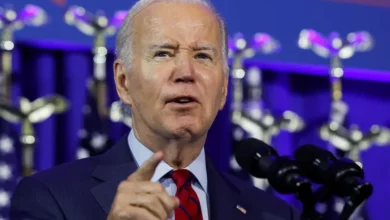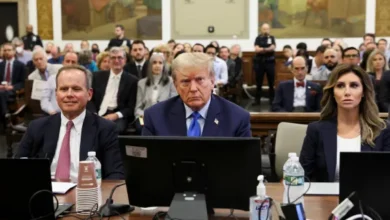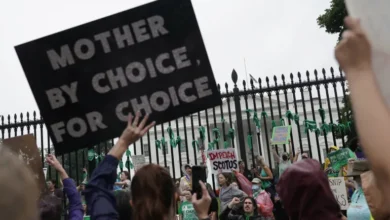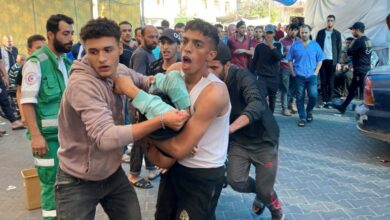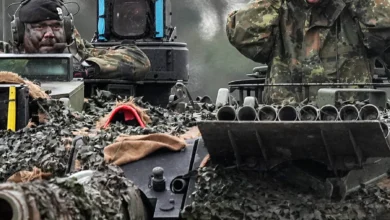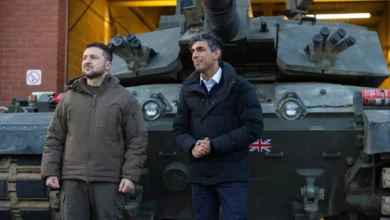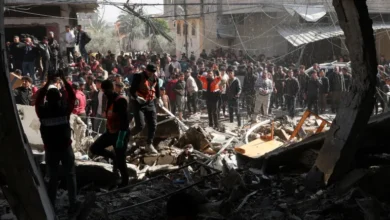Pro-Palestinian Israelis face threats, but vow to keep fighting for peace
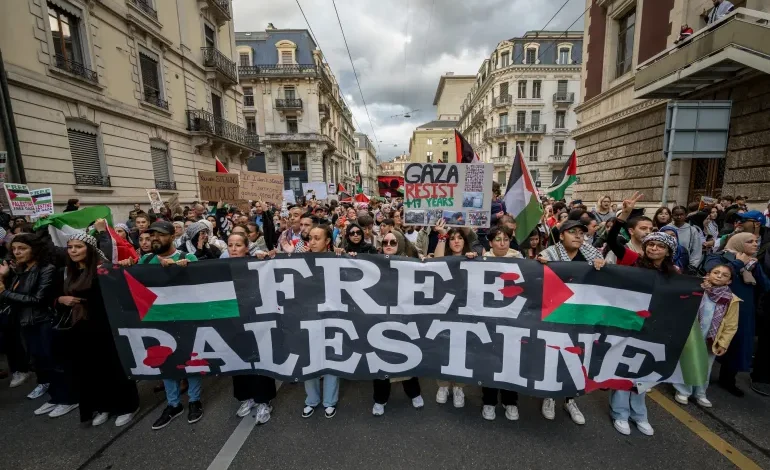
On Monday, a peace activist from Be’er Sheva, in southern Israel, learned that his friend, Khalil Abu Yahia, a resident of the war-torn Gaza Strip, had been killed in an Israeli air strike.
“He was one of the organisers of the Great March of Return,” said Yossef Mekyton, visibly shaken and emotional when referring to the March 2018 to December 2019 pro-Palestinian protests held along the Israel-Gaza border.
“And he was killed with his whole family.”
Mekyton, an Israeli citizen, has long supported the rights of the Palestinians.
But since the events of October 7 – when Hamas fighters breached the Gaza border with Israel, killing some 1,400 Israelis, prompting an unprecedented scale of bombardment on the Palestinian enclave – Mekyton says that many Israeli-based activists live in a climate of “fear”.
“I think one of the most effective ways to commit suicide these days in Israel is to go out on the street with a Palestinian flag,” the graphic designer told Al Jazeera.
While the treatment of activists felt threatening before October 7, it is “much more threatening” now, he said.
Israeli Prime Minister Benjamin Netanyahu has promised to destroy Hamas – which has controlled the impoverished Gaza Strip since 2007 – following the group’s incursion and kidnapping spree.
But Israel’s relentless shelling of Gaza has killed 8,500 Palestinian civilians, including more than 3,500 children.
Israeli troops claim that among the dead are several Hamas commanders. The Palestinian group has not yet announced any deaths of its fighters.
On Wednesday, as fighting raged, the Israeli military struck the Jabalia refugee camp in northern Gaza, a day after it first bombed the site, killing dozens of Palestinians.
Fear and panic have gripped most sections of Israeli society following the Hamas attacks, making the activities of Israel’s activist population more conspicuous than ever.
“I am facing harassment by individuals on social media,” said Israeli Ofer Neiman, a pro-Palestinian resident of Jerusalem and supporter of the Boycott, Divestment, Sanctions (BDS) movement, which is committed to putting political and economic pressure on Israel to end its occupation of the Palestinian West Bank and blockade of the Gaza Strip.
“Will it get worse? Yes, perhaps – it is concerning.”
On October 28, dozens of Israelis attended an anti-war protest in Tel Aviv – widely regarded as a liberal city.
Right-wing voices ‘dominate’ discourse
Last month, Israeli Police Commissioner Kobi Shabtai warned there would be “zero tolerance” for domestic rallies supporting Gaza.
But there are signs of a crackdown that go beyond protests.
Israeli Jewish sociolinguist Uri Horesh recently announced that he had been suspended from his lecturing role at Israel’s Achva Academic College, citing his opposition to the attacks on Gaza as the reason for his dismissal.
Israel Frey, an ultra-Orthodox Israeli journalist, was forced into hiding after expressing support for the people of Gaza – which he said made him the target of far-right activists.
And it was reported that an Israeli citizen had been arrested on account of a publicly displayed sign.
“There is no sanctity in an occupied city,” read the sign, which had reportedly been hung from the window of his Jerusalem home for years.


